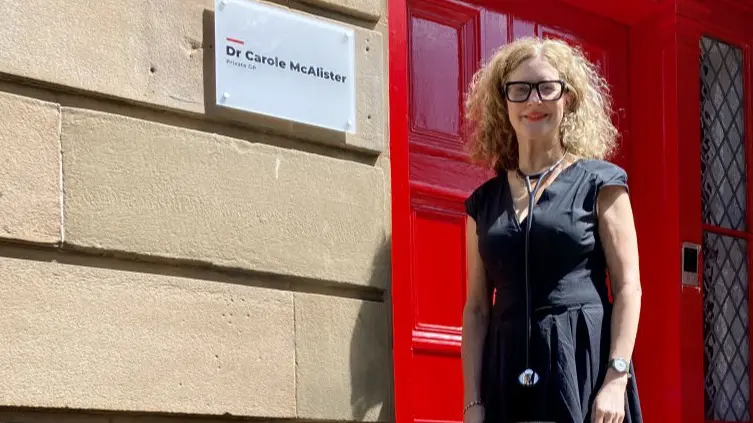Botox for Migraine
Botox Treatment for Migraine in Glasgow
Botox is an effective treatment for migraine headaches.
It is thought that botulinum toxin gets into the small nerves that carry pain signals from the head to the brain, known as C-fibres. This reduces the amount of chemicals released from the nerve endings and therefore interrupts the feedback pathway that perpetuates migraine and headache. Essentially the botulinum toxin works on the neurovascular junction (between the nerves and blood vessels) primarily in the area above the eyebrows to treat migraine headaches.
Botox is given as a series of tiny injections under the skin or into the muscles in and around the forehead, above the ears, and into the neck and shoulders. The injections usually need to be repeated every 12-16 weeks, after which time the effects of the botulinum toxin wear off. Normally a response is seen after the first or second set of injections. Only about one in ten people respond to a third set of injections if the first two sets fail.
The appointment takes approximately 15 minutes.
The goal is improvement in the patient's quality of life.
About one in four patients do not respond to the treatment. One in four respond well to the first or second set of injections, and half need more than two sets of injections to get a good response. Studies show that 47% of patients had a 50% or greater reduction in the number of days with headache.
We have audited our results and have more than a 70% success rate of relieving patient's migraine headaches. In the majority of cases this is complete remission allowing people to get on with their lives, whilst in others it means more days of the month headache-free or in some a far better response to migraine medication than prior to the treatment.
The biological effect of botulinum toxin on nerves takes 3-5 days or a week or two to work. Some patients do not start to improve until after their second set of injections which can be given 12 weeks after the first set of injections.
People who are pregnant or breastfeeding.
If you have a neurological disease, for example Bell’s palsy, a neuropathy, or Myasthenia Gravis. Also patients with multiple sclerosis affecting the head and neck areas.
If you have recently (within the last 3 months) had cosmetic botulinum toxin then the side effects could be increased.
Tell our doctor if you:
▪ Have had problems with injections (eg. fainting) in the past
▪ Have had problems with previous botulinum toxin injections
▪ Have inflammation, weakness or wasting of the muscles where your doctor plans to inject ( botulinum toxin is a contraindication in patients with or suspected to have myasthenia gravis)
▪ Have had problems with swallowing or food or liquid accidentally going into your lungs
▪ If you have been treated for persistent muscle spasms in the neck and shoulders
▪ Suffer from any other muscle problems or chronic diseases affecting your muscles
▪ Suffer from certain diseases affecting your nervous system
▪ Have an eye disease called closed-angle glaucoma or were told you were at risk of developing this type of glaucoma
▪ Have had any surgery that may have changed the muscle that is being injected
▪ Are taking any blood thinning medicine
Cooling-off period
The procedure can sometimes be performed on the same day, but for those new to the procedure or that have medical issues, a “cooling-off period” is generally recommended, followed by another scheduled appointment.
See HERE
Generally, Botox is well-tolerated. The most common side effects include neck pain, muscular weakness and drooping of the eyelid. These side effects are temporary because the treatment wears off over time.
Please click HERE for patient's reviews.
The Migraine Treatment price is £250
This price includes:
- A professional treatment carried out by a qualified Doctor, not a nurse or beautician.
- Free consultation.
- A 2 week review appointment if indicated
- A fixed price for men or women.


